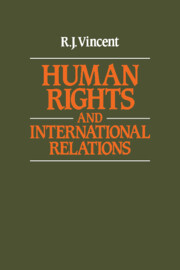2 - Human rights in western political thought
Published online by Cambridge University Press: 11 November 2009
Summary
A characteristic part of the claim that there are such things as human rights has been that they are universal, and that they are not subject to change over time — since they express the essential nature of human beings. In fact, there have always been difficulties with the notion of the universality of human rights. These will be examined in relation to contemporary world politics in Chapter 3, and in relation to the debate within a western tradition in this chapter. But the chief concern of this chapter is with the fact of change over time. Human rights did not just happen, they had to be invented; and their proponents had constantly to defend them against the view that they were chimerical. Even the naturalist account, according to which what we now call human rights were not invented but discovered (or, in an earlier period, revealed), accommodates change by suggesting that the process of discovery is not once and for all. And whether it is a story of discovery or of invention, it is the evolution of the idea of human rights in western thought that is the main subject-matter of this chapter.
This involves going into the history of ideas, but not in Sir Herbert Butterfield's exhausting sense of analysing ‘all the mediations by which the past was turned into the present’.
- Type
- Chapter
- Information
- Human Rights and International Relations , pp. 19 - 36Publisher: Cambridge University PressPrint publication year: 1987



